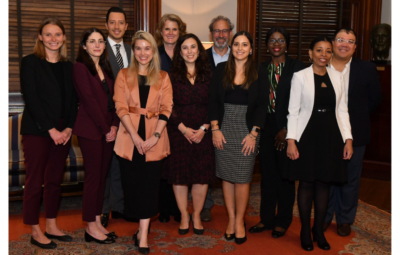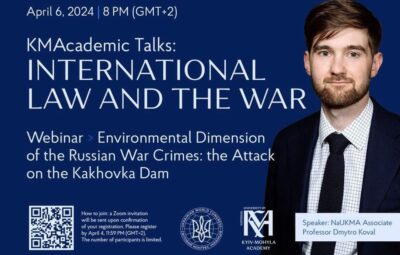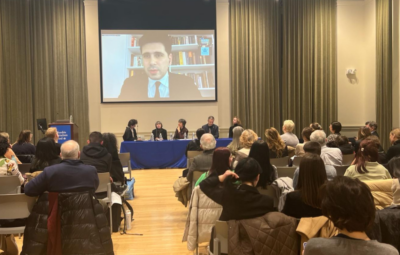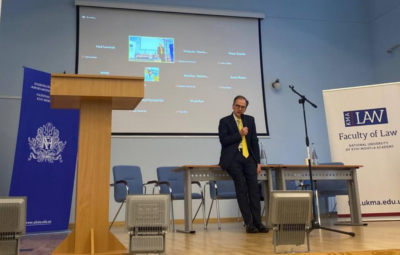Innovative English Language Peer to Peer Writing Workshop Pairing US and Kyiv Mohyla Law Students
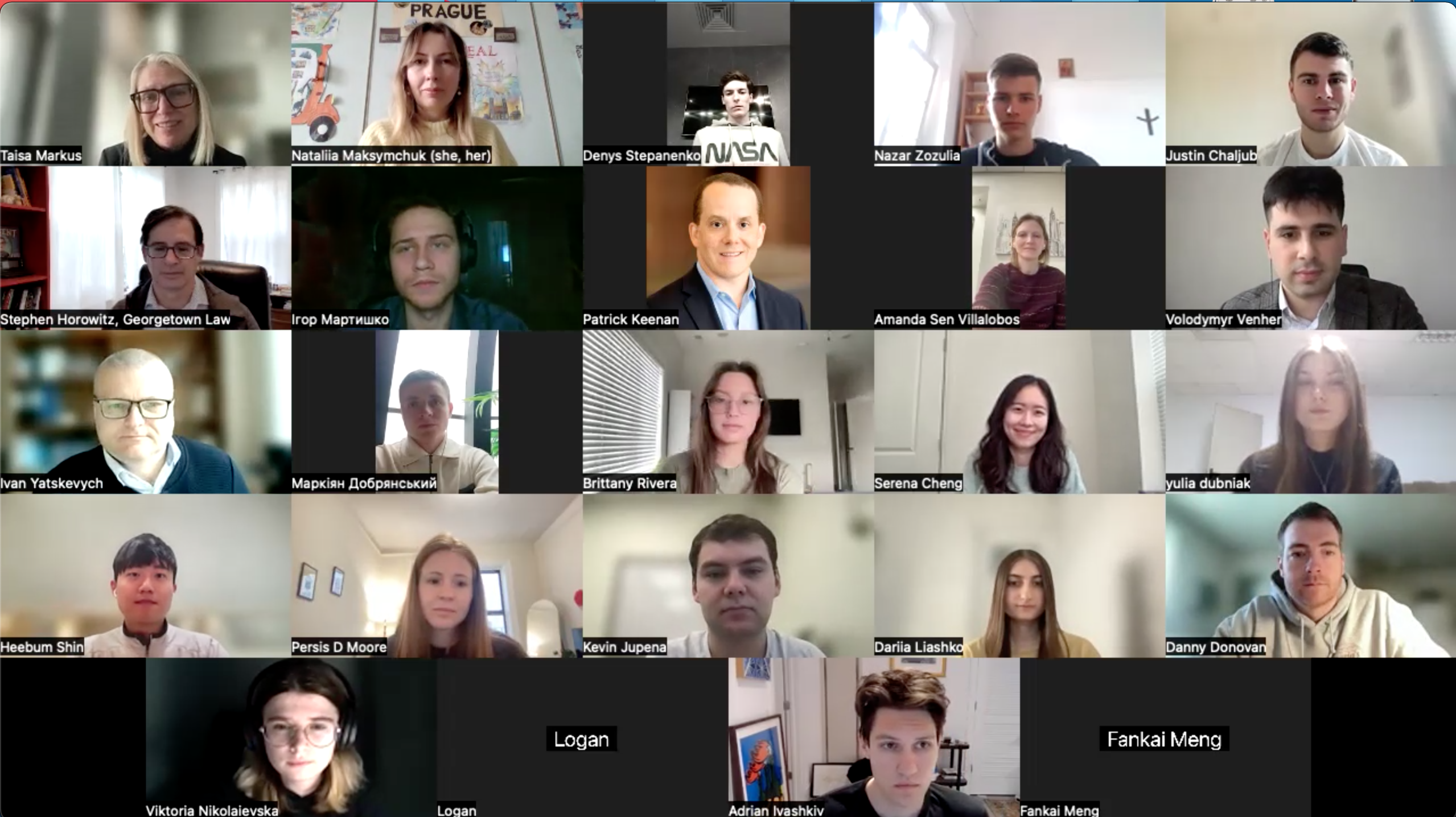
The Faculty of Law has built and expanded its collaboration with law schools and students in the United States with its first of its kind peer to peer writing workshop in Ukraine. The workshop successfully launched in the fall term of 2023 and was oversubscribed for the spring terms of 2024.
The workshop pairs US law students with Ukrainian law students. US students serve as individual tutors to the KMA students on an English language writing assignment on a Ukrainian law topic. Georgetown Law, Loyola University Law School – Chicago, The University of Chicago and the University of Illinois at Urbana Champaign participated in the inaugural session and were joined by Columbia Law School, Fordham School of Law and Yale Law School in the spring.
The workshop’s immediate educational goal for the KMA students is to learn to write in legal English for English-speaking clients and to develop familiarity with the types of legal issues that will be critical in reconstruction and foreign investment after the war. US tutors and faculty find the workshop a valuable opportunity to support Ukraine and legal education in Ukraine in a structured concrete way. For all participants, the chance to develop relationships across borders is mutually beneficial.
The workshop was established under the leadership of Dean Volodymyr Venher. Taisa Markus, Adjunct Professor of Law at the University of Illinois – Urbana Champaign and Visiting Professor at KMA, spearheaded efforts with the US law schools and structured the workshop. Natalia Maksymchuk, Director of the English Language Program at the Faculty of Law, serves as Deputy Director. Associate Dean Ivan Yatskevych advises on substantive Ukrainian legal issues and on structuring the curriculum. A number of faculty and administrators at the US schools and at the KMA Faculty of Law are involved in the workshop.
Natalia Maksymchuk, Deputy Director of the workshop says “I am thrilled to lead an innovation in legal education in Ukraine. We hope to expand use of this educational methodology as it has proven to be extremely beneficial for our students and a fantastic way to build bridges not just among the students but among the faculty in the US and Ukraine. I am extremely grateful to my US colleagues and the US tutors for their support.”

